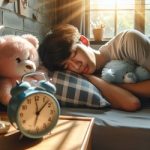Energy Drinks May Affect Young People’s Sleep
A large-scale study recently published in the open-access journal BMJ Open reveals a link between energy drink consumption and poor sleep quality and insomnia in young people.
The more frequently young people consume these drinks, the less sleep they get each night. Even occasional consumption, as infrequently as 1-3 times a month, can increase the risk of sleep disorders.
Energy drinks typically contain an average of 150 milligrams of caffeine per liter, along with sugar, vitamins, minerals, and amino acids. These drinks are popular among young people as mental and physical stimulants.
Researchers used data from 53,266 participants aged 18-35 in the SHOT22 study on the health and well-being of Norwegian university students.
Students were asked about their frequency of energy drink consumption and detailed questions about their sleep patterns. Sleep efficiency was calculated based on total nightly sleep time and time spent in bed.
Insomnia was defined as difficulty falling asleep and waking up early on at least three nights a week, along with daytime sleepiness and fatigue on at least three days a week, persisting for at least three months.
Survey responses indicated significant gender differences in energy drink consumption patterns. For instance, women were less likely than men to consume energy drinks frequently or at all.
Among those who did consume these drinks, 5.5% of women reported drinking them 4-6 times per week, slightly higher than the 3% who said they drank them daily. Comparable figures for men were 8% and 5%, respectively.
There was a clear dose-response relationship between energy drink consumption and reduced sleep time: both men and women who reported daily consumption slept about half an hour less than those who reported occasional or no consumption.
Increased consumption was also associated with poorer sleep efficiency, more frequent night awakenings, and longer time needed to fall asleep.
Insomnia was more common among daily consumers compared to occasional or non-consumers, with the respective percentages being 51% versus 33% for women and 37% versus 22% for men.
Overall, across various aspects of the study, higher energy drink consumption was linked to an increased risk of sleep problems.
Thank you for reading! ” Sitestorys “


